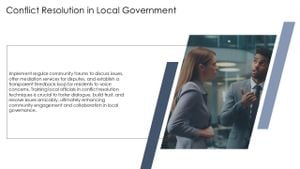India's political arena is heating up, particularly driven by the recent controversies surrounding business tycoon Gautam Adani and the Adani Group. These controversies have correlated with broader political maneuvers and scrutiny from opposition parties, triggering significant unrest within India's legislative framework and economic discussions.
Just days ago, the Lok Sabha witnessed opposition MPs rallying for inquiries linked to the Adani Group’s alleged corruption imprint. The Adani Group has been thrust under scrutiny not merely for its soaring business empire but for terms surrounding its dealings raising suspicion about ethics and legality. Among the loudest voices from the opposition was Rahul Gandhi, the current Leader of Opposition, who vociferously demanded accountability from Prime Minister Narendra Modi and the government on these matters.
The protests gathered momentum on December 3, 2024, as Gandhi led the INDIA bloc MPs, which included Congress leaders and other key opposition figures. They staged their demonstrations right outside Parliament, calling for detailed investigations by parliamentary committees to untangle the web of alleged irregularities surrounding Adani's corporate practices. Gandhi articulated his position, stating, "Hundreds of people are being arrested over minor charges, whereas Gautam Adani, who has been indicted for vast corruption cases abroad, has yet to face any real consequences. Why is he being protected?" This pointed inquiry is bolstered by recent allegations posed by US prosecutors, who implicated top Adani officials, including Gautam Adani himself, for fraud and bribery.
Supporters of the Adani Group have been quick to respond to these accusations, emphasizing the absence of formal charges against Gautam Adani and his nephew, Sagar Adani. A statement put forth by Adani Green Energy Ltd insisted reports linking the group to Foreign Corrupt Practices Act violations were incorrect, reflecting their intent to disassociate the group's public persona from any damaging allegations.
The backdrop of this controversy portfolios broader themes of political calculations and the perception of governance during Modi’s administration. With elections looming, the questions arise: Can the opposition galvanize public sentiment against the incumbent government through these controversies? And how does Modi's government plan to navigate through these turbulent waters of allegations lacing major business players with political ties?
Indeed, the implications of the Adani situation trickle down deep within India's economy. With the Adani Group being one of the largest conglomerates, especially within infrastructure and renewable energy, its stability holds significant sway over investors' perceptions of India’s economic integrity. This shadow of doubt has stirred international interest, potentially causing ripples among commercial investors wary of engaging with entities mired in controversy.
Compounding the unrest, Finance Minister Nirmala Sitharaman addressed the Lok Sabha's session with statistics indicating remarkable growth within the sector but simmering beneath the surface. The banking committee's recommendations, ranging from increasing the number of beneficiaries allowed on bank accounts to raising limits for directorships, speak to efforts to reinforce trust within financial systems, albeit overshadowed by Adani's rising tide of controversy.
Sitharaman took a moment to highlight the government's efforts since 2014 to safeguard banks against failures prevalent in other nations' financial systems. Yet, with opposition demands echoing through the chambers, the government’s narrative appears under chokehold, straining to distance itself from any potential fallout related to Adani.
Other concerns also trickled down during the week’s parliamentary proceedings, including significant discussions around banking laws and oil and gas exploration. Here, the Rajya Sabha passed initiatives aimed at attracting investments within these sectors, promising reforms to streamline operations and invite foreign investors. Oil Minister Hardeep Singh Puri mentioned the importance of establishing stability within these frameworks, highlighting the need for legislative support benefiting not just local operators but foreign partners as well.
The overall tone of the parliamentary sessions, juxtaposed with the Adani outrage, has created an intriguing but volatile mix driving India's political climate –where economic talks and political interests continuously interlink. With the Joint Parliamentary Committee (JPC) probe repeatedly demanded by opposition parties led by Congress, the intensity of the protests, aiming to corner Modi's team, raises larger questions about accountability and the intertwining of business and politics.
With tensions bubbling over and the opposition unyielding, the spotlight remains squarely on the Adani controversy and its broader implications on political stability, investor confidence, and the notion of governance within India. The Indian populace remains watchful, weighing the government's responses against the operatic political scenes playing out across legislative halls. Every twist and turn, as mandated by the ambitious leaders of the INDIA bloc, keeps the narrative of accountability alive, fueling public discourse on what the future holds for India's burgeoning democracy.



